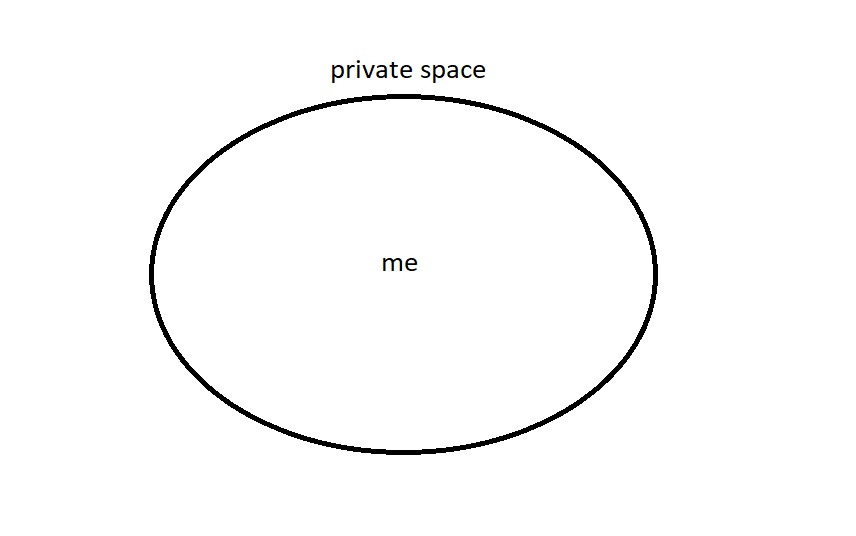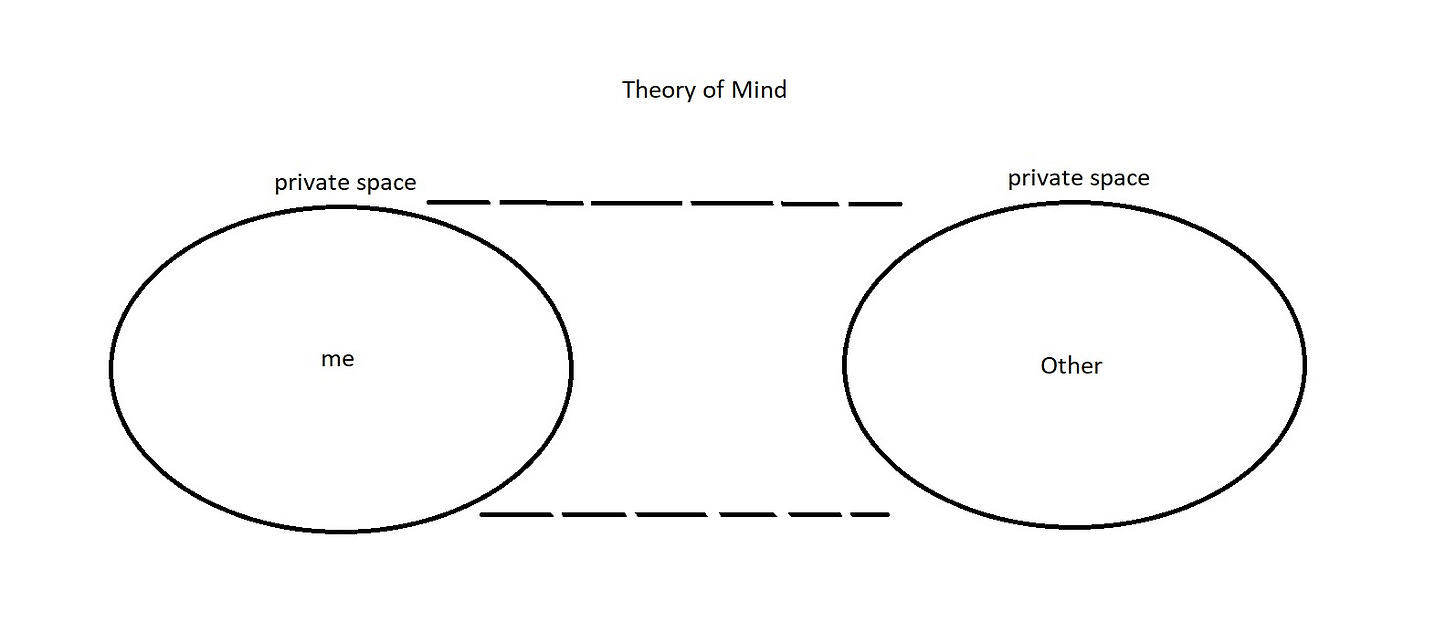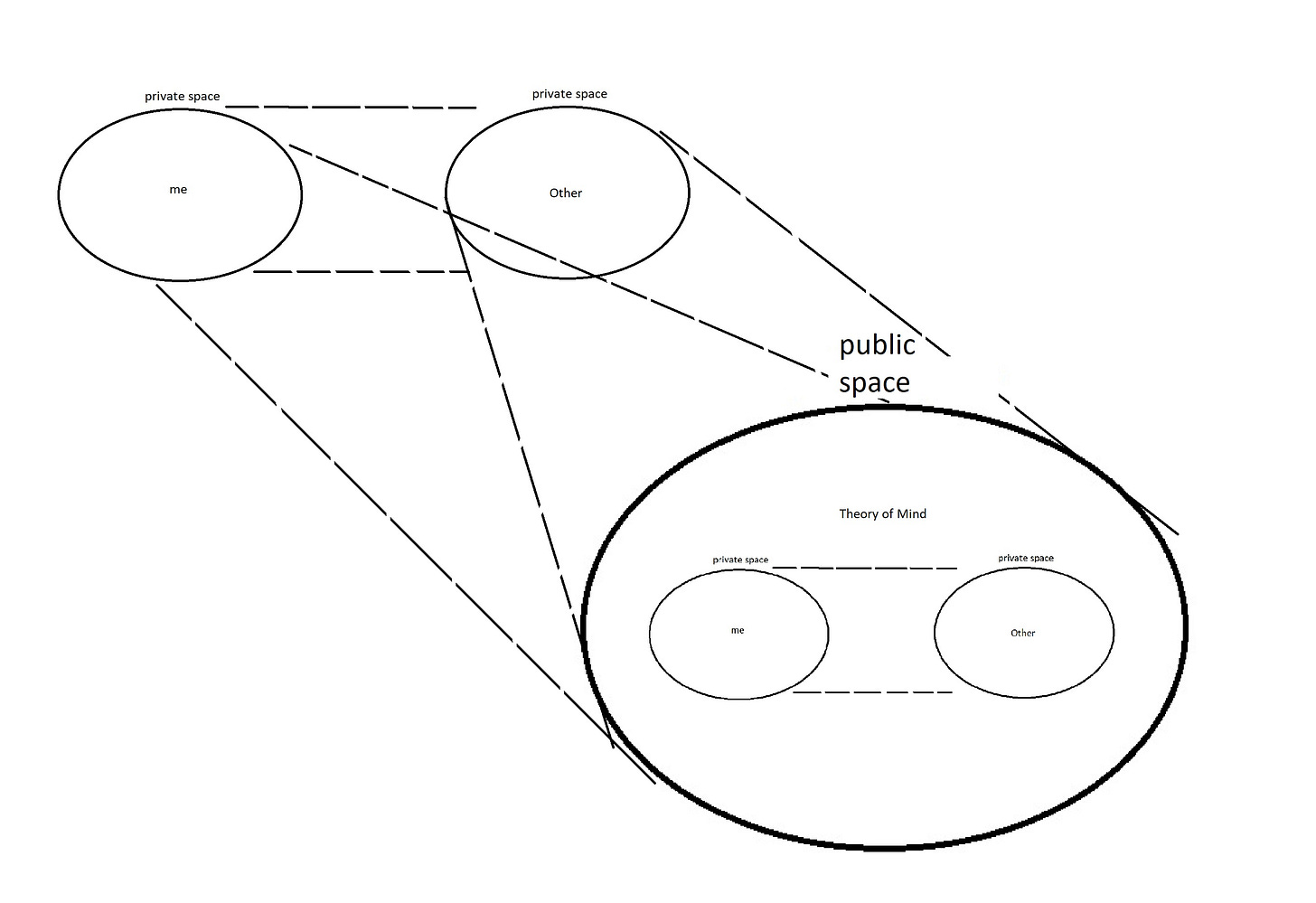Beyond Breakfast: The NPC Question
Part 1: Introduction, repetition, expression, objectification
A popular factoid to drop while making conversation at a dinner party, is how despite what we might imagine being humanity’s greatest fear, a study shows that public speaking is leagues ahead of heights or spiders or drowning.
As a man who has both overcome that fear and had a minor career as a public speaker, and a man who is currently reading the ordeal of civility, I have made some connections. I have some ideas.
Road Rage
The phenomenon of road rage is not a product of people recognizing that they are in a dangerous environment, and that other drivers, by causing them an inconvenience, bring their lives into danger. Although if you look at it analytically that seems like that would be a good reason. It seems like it ought to be the reason, right? Except, it also happens …
In my previous blogpost about road rage, comparing it to Internet rage, I proposed the mental, psychological mechanics of a private and public “sphere”, and the concept of road rage as a product of an internal confusion between the two categories, where a transgression is felt more intimately than it would otherwise, because the subject confuses the public space of the road with his own psychological private space: how dare you disrespect me [in my own home]. The thesis here is an elaboration on this concept.
In road rage, I assumed the categories as universal, for the sake of explaining a singular phenomenon. Here, we investigate how the categories come about, and their consequences. In fact, the thesis is their non-universality, and the car and phone examples as, not small particularities, but a symptom of a more fundamental problem.
It is my contention that the mental category of “public space” is a direct, but second order, effect, of being initiated into what we commonly call “politeness” or “manners”. That is: the arbitrary courtesies of saying “yes please” and “may I” and “excuse me”, as a necessary (but not by itself sufficient) prerequisite for constructing, in the individual, the mental concept of “public space”, as differentiated from owned space, or space owned by another, or space owned by no one (nature, wilderness). Or perhaps even, a prerequisite for the concept of what we otherwise call “Common ground”.
When we talk about “being able to tell the difference between fantasy/media/etc and real life”, most often we are talking about being able to tell the difference between private and public space. “In the longhouse/shtetl, there is no private life”. Women can’t tell video games from real life.
I contend that the meme/phenomenon of the “NPC” is the discovery of a kind of man, or woman, who either has not developed this mental category sufficiently, or, is in a state of overt rejection and resignation towards it, for various reasons which we will speculate and elaborate on later.
The idea goes like this:
Teaching politeness rituals is prerequisite for introspection, because it teaches the private-public distinction, which is necessary psychological component for reflection itself, as reflection requires objectifying yourself to yourself. Theory of Mind is not enough, without Theory of Public Space, you remain what McLuhan calls tribal, for the rest of your life.
The development from early christian concepts of charity, to medieval chivalry, to modern civility is a psychological development of introspection, where the individual is becoming gradually more sentient - self-aware - as a deeper integration of “charity” leads to higher levels of consciousness. Basically, civilization is not an accident. And it’s not an accident that that’s what it’s called.
The modern “NPC” of leader-following TV-believing thoughtlessness is not a question of intelligence or hypnosis or getting tricked by charismatic leaders. It is the conscious or subconscious rejection of what we might call “psychological public life”.
Repetition, slogans and pop culture references
As I was writing the first notes of this text, in the lunch room at work, a coworker entered the room to inspect the days menu. Asking the chef a certain dish was made from, and learning it was kebab, she broke into song: some commercial jingle or a pop song or something from a TV show, I don’t really know. I didnt get the reference.
It wasn’t funny, and it wasn’t intended to be. It is well known that a well timed joke relieves social tension. But what does a "reference" do? What does a reference that's specifically, categorically, not funny, do? What is the mechanical thing happening here?
The Reference is a way to escape social expectations of refined behavior, masquerading as a joke. It escapes the social in its entirety, rejects it, and supplants it, sublimates it with the private, because the reference is always to electronic media, which by its design is immersive and a perfectly private experience.
In the electronic age, sharing of vulgar media reference has replaced politeness rituals. Instead of gesturing to other people in the room, socializing, we instead gesture to ourselves. Referencing game of thrones and star wars is private, because the experience of watching TV is a private experience. So in the anxiety of “public speaking”, in a normal social situation, you dilute the anxiety by summoning the private experience. Instead of being in the public space and enduring the inherent psychological stress that entails, the cultural reference is a way of temporary mutually hypnotizing yourself back into safe, private space. It's detaching yourself from the Other. Instead of looking each other in the eyes you both regress back into yourself and look at yourself looking, look at the backside of your own eyes. The effect of mass media is the destruction of public space, the disillusion of the distinction. "the personal is political" never meant, the personal influences the social. It was a declaration of intent and aggression.
When the “NPC” - the man who is in resignation - references a song or jingle, he is casting a spell to avoid the experience of “being in public”. When people react to the reference, they are not performing a social connection, but are also using it as a way to escape public space, back into the immersive private sphere. Virtual Existence is entirely private.
Although the content doesn't need to be vulgar, the reference always is, in and by itself, because that is the purpose of it - to escape the tension of public expectations of behavior, decorum, which is experienced as a kind of "ability" - social skills - which can be failed and excelled at.
We might otherwise call this narcissism, but in this context, narcissism as such is not a mental illness, but a kind of npc-ism: either cowardice, or the lack of ability, to “speak in public”. Many are capable who do not attempt it, and many are simply incapable, having not developed the psychological necessities to enable it. More on this in part 2.
Self-expression and objectification
My career as public speaker taught me in a painful and intimate way, that it doesn't matter how sincere and direct and open and transgressing private boundaries you are, no matter how heartfelt your “expression”, it always becomes reduced to an “act” once you are on-stage. You cannot be fully human on stage, not in the way you want to, at least.
This is just an aspect of public sphere, and the difference between being a good and bad public speaker is learning to lean into it and accept it. Work with it. The arbitrary bourgeoisie politeness of “may I” “please”, and so on, are exactly as fake as your most heartfelt, intimate expression of expressionism about your hurt feelings or romantic gestures or deep thoughts, the moment you express them in public space. There is a difference in scale, but not in category.
The joke resolves social tension, and allows you to remain in the public sphere. The reference is an anti-joke, in that it works exactly the opposite way, as a way to escape the public sphere.
In all public speaking, art, performance, you are objectifying yourself. That is unavoidable, because that is what stepping out of the private and into the public sphere, and showing off your private sphere to the public, is: you are making your private sphere an object in the public sphere, and so necessarily it feels lesser, being an object rather than the world itself.
Regardless of the content of your expression, expressing it publicly is inherently humiliating, because it is objectifying yourself. Literally. Usually it is an extremely tiny kind of humiliation so small you don’t even notice it, because you have grown accustomed to it, and you are strong enough to bear it. But people are overall getting weaker.
You could maybe think about it in evo-psych terms as the fear of humiliation being the fear of expulsion from the tribe, but I personally don’t think that’s accurate. We don’t fear punishment, but judgement itself.
My career as a poet changed over time, my initial motivation of doing it for myself, for my own expression and gratification, using the audience as a tool for my own self-reflection and self-realization, gradually becoming for the audiences sake. The content and outward expression changed very little, but simply by going through the process of objectifying myself, my deeply felt heartaches and pain and woe is me despair, gradually changed from tragedy to comedy. It became less about me “feeling like I expressed myself” and more about “making people laugh/learn/get something out of it”. I talked to a lot of people who had a similar experience. You start doing it for you, but as you get better you start doing it for them.
This is all just to say, self expression in this sense, doesn’t work. The more you try to make everyone take you seriously, the more you realize you are being a clown. Your most sincere pain and all this bittersweet aesthetic beauty you sense in it, is all just as arbitrary and void as the little stupid politeness rituals you want to rebel against and call insincere. And you can experience this directly, undeniably, if you speak honestly about it, in public.
I used to say I wanted to be “naked in public” - without pretense, without insincerity. That’s not entirely right. I just wanted to be in the public sphere-but-without-anxiety, and attributed my anxiety to my own personal psychological hangups, and the “arbitrary” expectations of “society”. The answer is, rather, that the anxiety is just part of the deal of more advanced sentience. It’s a mechanically necessary part. It’s a package deal called life.
And the only reason I can reason my way to this conclusion, I contend, is because my parents taught me table manners.
This is also incidentally am explanation for how it’s possible for a parent to make his children better than himself.
Introspection is the act of self-objectification. Self-objectification requires being able to construct the complex, multilayered psychological operation of separating self from other. Theory of mind only provides a 2d universe, you are only objectified across a single line, towards the Other. 3d space is going a step beyond: the triangle is the strongest shape in nature, and the first stable shape in geometry.
We joke about “4d chess”. The sad reality is that there is a meaningful distinction between 2d and 3d psychology. How can you rotate a shape in your imagination, if you literally think in 2 dimensions?
In the 20th century's movements towards so-called “higher consciousness”, cults and the wisdom of the east and so forth, the fundamental premise is always: “discarding the arbitrary rules holding us back from higher consciousness”. What if the rules are not bars in a prison, but steps on a ladder? And you’re just perceiving it sideways, because you don’t have any depth? Perception?
The joke is itself a kind of training in 3d psychology. The classic structure of joke is: premise → creates assumption —> revelation of new information, that re-contextualizes the question, and reveals the assumption was wrong. Recognizing that one’s assumption was wrong requires objectifying yourself, viewing yourself as the object from an outside perspective. In this sense, jokes are polite. In a more extreme example, in this sense, we can see innuendo not as repressed sexuality, repressed Id, as they Freudians would have it, but rather the opposite: refined, more potent, nuanced, deeper - even more direct, Id expressions, than even overt vulgarity.
We all know “you are afraid to show your face online” actually means “you are afraid to show ME you address and place of work”. But here is, I think, an important nuance: Yes, they know full well they are being deceitful. It is overt aggression. But they don’t know how, or why, it works. Only that it works. And crucially, you cannot explain it to them. You can only begin the slow, arduous process of teaching them manners.
In a culture of civility, you can train the outsider by silence and shame - non-participation, exclusion. If you are the mainstream, exclusion can be training. But this is not the case in many places today, and you will have to resort to overt shaming to train them. "Will you please not talk on your phone in here? You are being very rude", etc. Manners, today, is a matter of life and death.
For a long time, my go-to response to people who want to fight me on the internet has been saying “everyone can see what you’re doing”. I think now more than ever that’s important.








"wake up honey, new egg report dropped"
I've got a 5 page unfinished draft of a work I was thinking of publishing called "Civilisation: The Basics" and, with different terms you have made that effort no longer necessary. The inability to make explicit the rules that make distinguishable the public-private domain is the primary cause of cultural anarchy aside from immigration. At best, when conveyed and obeyed with intent and clarity, not only regarding the rules but the consequences of more-boundaries, the public domain is made another private domain altogether, whereby the differences between private sensibilities are so outwardly subsumed by signified role playing, that one may no longer need to be defensively conscious of others predilections and individual peculiarities - for being so outwardly conforming, they become as it were, like furniture to the mind - that is inert, predictable, safe, enclosed. Only Japan has the momentum of cultural conformity to retain this possibility, which is why it is the only first world country, culturally, in the world. Thank you so much for writing Randy